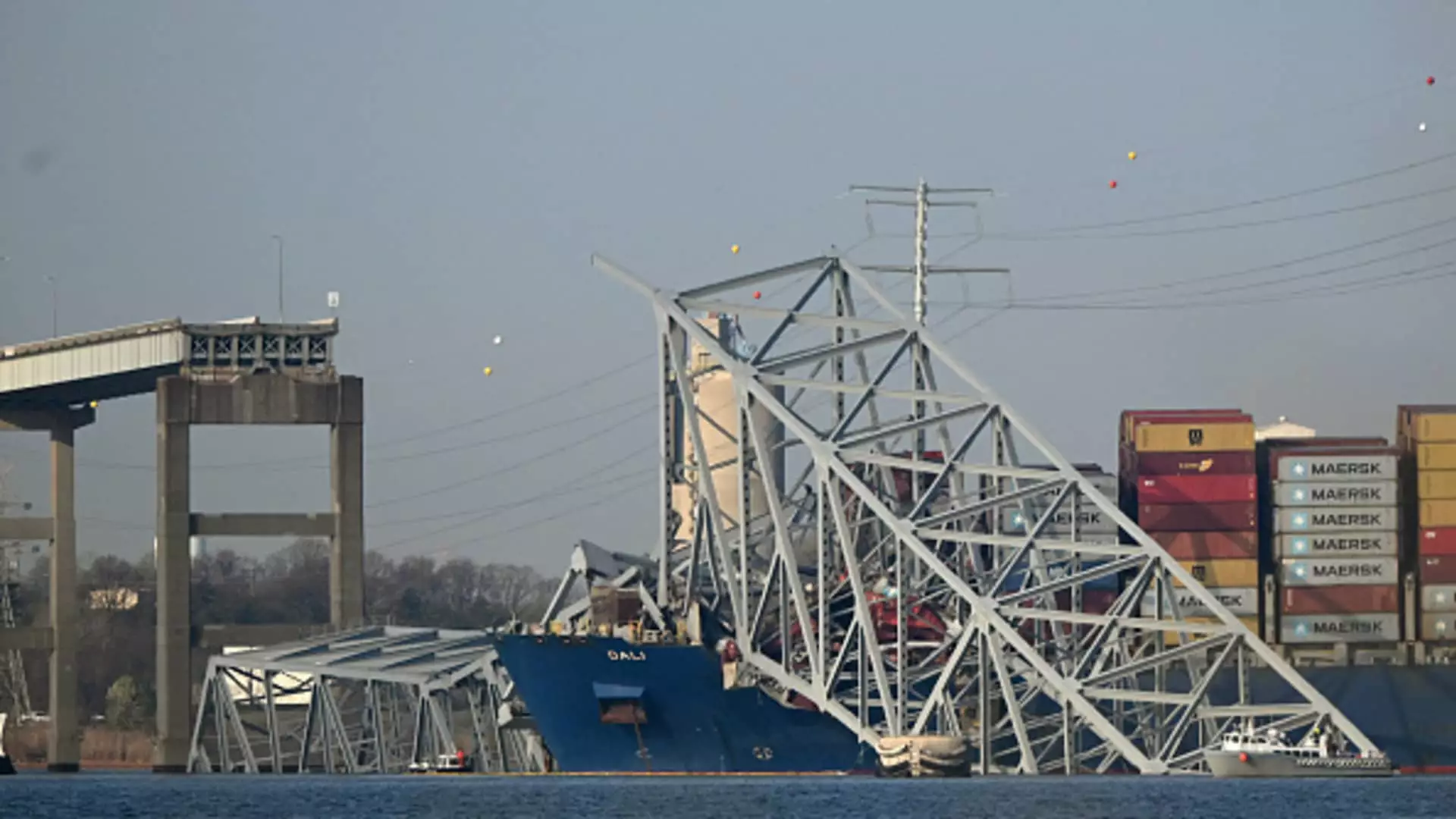The recent collapse of the Francis Scott Key Bridge in Baltimore has sent shock waves across the U.S. economy. Maryland Governor Wes Moore described it as a national economic catastrophe, emphasizing the significance of the bridge as a key shipping route for certain goods. The Port of Baltimore, which is among the busiest and most active ports in the nation, relies heavily on the channel that is now blocked by the wreckage. This disruption is expected to have far-reaching implications, affecting not only the people of Baltimore but also individuals and businesses across the country.
U.S. Transportation Secretary Pete Buttigieg emphasized the importance of getting the port back up and running as quickly as possible. He highlighted the role of the port in national supply chains, stressing the need to restore operations to minimize the impact on various industries and sectors. The collapse of the bridge has created a challenging situation, with salvage and reconstruction efforts expected to be lengthy and complex.
The collapse occurred after a large cargo ship crashed into the bridge, resulting in casualties and significant damage. The operation to remove the ship, clear debris, and reopen the channel is already underway, with the deployment of specialized equipment like a 1,000-ton-capacity lift crane. However, there is no clear timeline for completing the salvage work or rebuilding the bridge. Governor Moore acknowledged the enormity of the task at hand, describing it as a long and arduous process.
The Port of Baltimore plays a vital role in the nation’s economy, processing millions of containers of cargo and handling a significant volume of shipments of cars and light trucks. This makes it a crucial hub for various industries, including automotive and agriculture. The port’s importance extends beyond Baltimore, impacting people and businesses in rural areas and contributing to the global economy.
In response to the bridge collapse, the U.S. government has allocated funding to support recovery efforts. The Small Business Administration is offering low-interest loans to affected businesses, while federal funding is being used to clear the wreckage and cover the costs of rebuilding the bridge. There are plans for legislation to ensure that the remaining reconstruction expenses are also covered. President Joe Biden has expressed his commitment to fully funding the bridge’s reconstruction, although some lawmakers have raised concerns about using federal funds for this purpose.
The issue of bridge funding has become a point of contention, with differing opinions among lawmakers. While there is hope for bipartisan cooperation, especially given the divided nature of the current Congress, there are challenges to securing support for the reconstruction efforts. Secretary Buttigieg remains optimistic about the government’s ability to address the situation effectively and ensure that Baltimore and the nation recover from this tragedy.
Overall, the collapse of the Francis Scott Key Bridge in Baltimore has had a significant impact on the U.S. economy, highlighting the interconnected nature of supply chains, industries, and communities. The repercussions of this incident are far-reaching, underscoring the importance of effective response and recovery efforts to mitigate the economic fallout and support those affected by the bridge collapse.



Leave a Reply